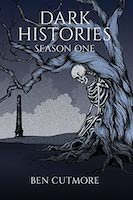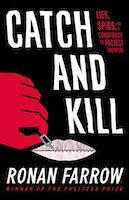Review: Love, Pamela
/5 stars. I admire Pamela Anderson a lot. I grew up in the 90s, so I know her as an icon - perhaps one of the biggest icons - on an international level, from a pop culture perspective... in a way that helps me navigate being female in this world. She almost, in fact, defines the word "icon," like Marilyn maybe does. She's incredible. Incredibly intelligent, witty, passionate, well-read, caring, kind, special, hilarious, and yes, beautiful. She has earned every bit of peace allowed for her - she has earned the choice, the options, and the right to decide for herself how, and where, she is seen and heard.
So, yes, I'm a fan. After watching the Netflix documentary for the first time, I started it over again, because (I'm aware how cheesy and stupid and uncharacteristic this sounds) I wanted to spend more time with her. I inhaled Pam & Tommy, feeling icky and amazed and compliant and compelled all at once. This means that I went into this book with some awareness, and some context, around what to expect. And the experience of reading it turned out to be deeply transporting - fun and funny and heartbreaking and full of wisdom and wonderful quotes.
"But, I argued, I am who I am, which is a combination of all I know, and I've always believed that striving to be a sensual person, or being sexy, should not conflict with intelligence. Women have fought hard so that we do not need to limit ourselves. And this confirmed for me that I had to use all I had even more to get attention for what was right. If the cartoon image of me was what got me through the door, so be it. And so I continued the work the only way I knew how. It was too late to turn back now, I thought - it would take time and effort to try to change people's opinion of me."
From her scrappy childhood to parties at Playboy to animal advocacy in Russia to wandering the streets of France to a stage on Broadway, Love, Pamela documents Anderson's life in her own words. She references books and art and influential figures, muses about philosophy and culture, honors those who have helped her, and those who have hurt her. She is charming and concise, with a bit of an unconventional style that in no way impedes a smooth, lovely flow.
"When
you have nothing to live up to--
you can't disappoint--"
If you've seen the documentary, there may be little to surprise here, but it's still an absolute joy to relish in Pamela's presence. We have a lot to learn from her, and maybe also from the mistakes we made in looking at her; perceiving her; dismissing her; limiting her; selling her; exploiting her; trying to define her. She's really something, and I'm happy for what she's found, and for where she is now. And wherever she goes from here, I have a feeling she'll conquer, heart first.
Lobe, Pamela on: Amazon | Bookshop.org | Goodreads










